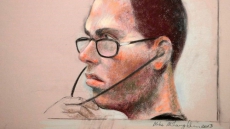OTTAWA - The Council of Canadians and the Canadian Federation of Students will ask the courts to overturn parts of the Harper government's Fair Elections Act.
The two groups and three individual electors will file their suit in Ontario Superior Court.
They are targeting provisions which make it harder for voters to prove their identity at the polls and reduce the powers and responsibilities of the chief electoral officer.
Council executive director Garry Neil says those provisions violate the equality provisions of the charter, as well as the guaranteed right to vote.
He also says the changes will make the commissioner of elections accountable to partisan interests, not the voters.
Neil says the new identification provisions in the law will especially erode the voting rights of young people, members of First Nations living on reserves, seniors and people with low incomes.
"The measures being challenged are profoundly anti-democratic," Neil said.
The act strikes at voting rights by making it harder for certain voters to mark a ballot, he added.
"It will make it impossible for thousands of electors to prove their address or identity in order to obtain a ballot to vote in the next election. It strips the chief electoral officer of his authority to alert the public and report to Parliament on complaints and investigations into election fraud. It makes the commissioner of Canada elections accountable to the government, rather than to Parliament."
Jessica McCormick of the students federation said the act alienates young people, who are already leery of the system.
"This act constructs additional barriers between young Canadians and their right to vote," she said.
Turnout is grim among younger voters, McCormick noted.
"Only 38 per cent of youth voted in the last federal election," she said. "Our elected representatives should be reaching out to youth and reducing the barriers to voting, rather than creating more."





